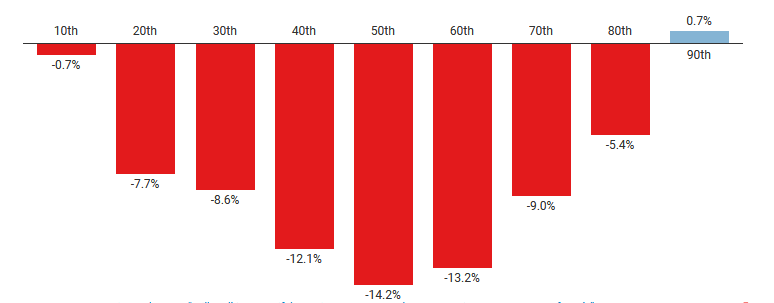“Capital is dead labor, which, vampire-like, lives only by sucking living labor, and lives the more, the more labor it sucks,” Karl Marx
An explanation is due after the introductory statement. I am not going to whine about how capitalism is a necessary evil and socialism or similar ‘isms’ promise a better future. Let’s agree with one basic fact. We are living in one of the most peaceful and technologically advanced era of human civilization on earth (that we know of yet). No major worldwide wars have taken place for around 75 years. We have developed tech miracles, with smartphones and social media becoming the new age essential commodities. It would be naive on my part to start blaming the burgeoning social media business and the companies involved to the decreasing happiness index and the gaping hole in income of the rich and the poor. But then facts don’t lie.
A recent study conducted by UC Berkely, (Chris Benner, Gabriela Giusta, Louise Auerhahn, Bob Brownstein, Jeffrey Buchanan) highlights the growing income inequality in Silicon Valley.

This chart shows the dip in income of employees belonging to different income brackets. The X-axis shows the percentile of total income earners. We can clearly see that the biggest dip has happened at the middle-income earner section (14.2%). The top tier has seen a rise of 1% and the bottom end is also pretty much stagnant at with a dip of 1%. The biggest impact has been on those slap bang in the middle of the average income bracket.
This is particularly alarming because from 1997 to 2017 the owners of some of the planets biggest tech companies have seen a massive jump in their earnings. Companies like Amazon, Facebook, Google have earned enormous wealth and control over the tech landscape. Amazon’s Jeff Bezos is presently sitting on top of a $150 Billion fortune.
The anticipation of the majority of the population was that tech will improve the average quality of life. It was believed that it would increase the minimum wage for the low rung workers, and improve the economic status of the middle class. The existing situation seems to point to the exact opposite direction. The reasons can be summed up as below:
- The competition is immense among the tech companies to survive. Hence profits are largely invested in R&D and in developing ‘better’ futuristic solutions – or new novel products for consumers and users. Advertisement and promotional campaigns have also become significant factors in the survival strategies. That’s why we don’t see companies building affordable housing for their workforce anymore, bonuses have become rare events. The money comes in and goes back into the wheel, the employees are given the reasoning that to survive, the company will have to innovate.
- The survival rate of start-ups are very low in the tech domain. Hence, more and more startups are shrinking their budget and ensuring that they can breach the profit margin early. To a certain extent this makes sense. But it is damaging for the people who join to explore new domains in their career. If the startup fails, they have to start afresh – and if it is even moderately successful they may find they are working astonishingly long hours for very little reward.
- The modern-day tech workforce is not organized in any manner. The top tech companies discourage their employees from creating any form of labour union. While activism at work has not been exactly a good influence, but the complete absence of it has often proved to be a disadvantage for the workforce, and is a particular disadvantage given the tumultuous conditions of working in the tech field.
The race to reinvent the wheel even when the system is running at a decent progressive pace is what has brought the human civilization to its present state. Global wealth distribution is skewed in favor of the rich few as badly as it possibly can. Monopoly in the tech market is not helping the cause. The internet is slowly becoming a playground for rich kids who own everything, right from the ground itself to the tools to keep it in shape. The rules are determined by them. The frenzy over yearly new tech releases is so huge and so marketable, that people have stopped asking the fundamental question of it all – what’s actually new?
This is what capitalism stood for during most of the 20th century – even if it wasn’t immediately clear as it is now.
It made people believe that consumerism can make their daily lives better, it’s perfectly ok to let go of a few basic humanitarian values in the pursuit of wealth, and most importantly that everyone can achieve it if they work hard and put their heart and soul into it.
Today, technology continues to show us such dreams. Artificial Intelligence and Machine Learning can make our lives better, self-driving cars should ease traffic issues, and halt the march of global warming. But just because we see these dreams, doesn’t mean they’re becoming true. For many people at the heart of this innovation should feel the positive impact of these changes in their own lives, not longer working hours and precarious employment. The constant urge to win the race shouldn’t make the rich richer and the poor poorer. If that pattern starts to emerge and is upheld in the next 4-5 years, then we can surely conclude that Capitalism 2.0 – the type of capitalism that benefits from vulnerability and not from the power and creativity we share – has finally taken its full form. We might have only ourselves to blame for.
Read Next
OK Google, why are you ok with mut(at)ing your ethos for Project DragonFly?
Facebook finds ‘no evidence that hackers accessed third party Apps via user logins










![How to create sales analysis app in Qlik Sense using DAR method [Tutorial] Financial and Technical Data Analysis Graph Showing Search Findings](https://hub.packtpub.com/wp-content/uploads/2018/08/iStock-877278574-218x150.jpg)





